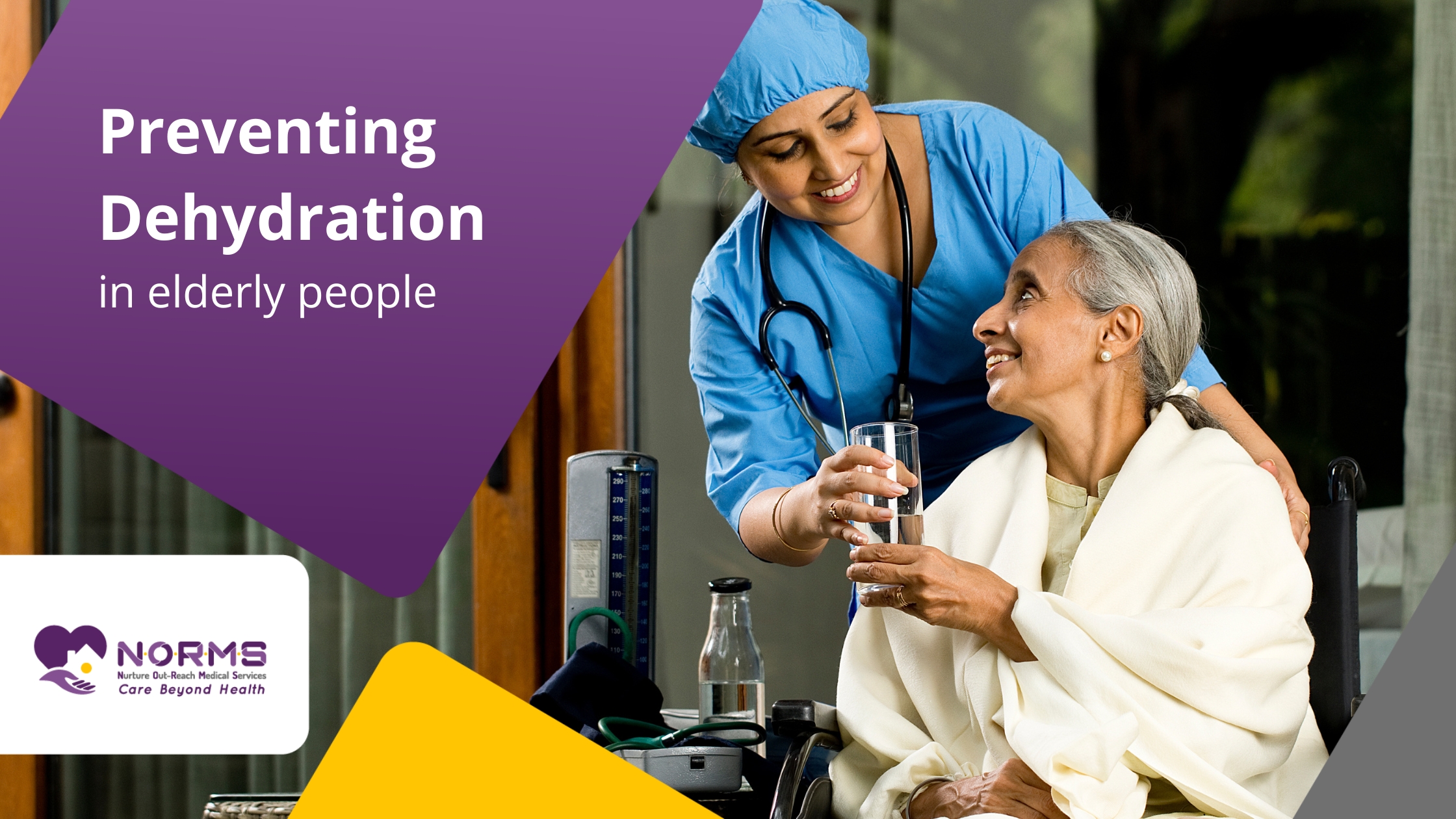
Feeling dehydrated is something we have all experienced at some point in our lives, Sometimes it’s the sunny afternoons or just a general lack of water intake. Many young people suffer from dehydration, but dehydration in the elderly
Dehydration for the elderly is a serious problem and one that needs to be addressed properly to avoid any further complications.
Delve into this article and find out how dehydration affects the elderly, and ways we can prevent dehydration in elders.
When you don’t consume enough water, you become dehydrated. An insufficient amount of water in your body can swiftly cause damage. Dehydration is more common on hot days or after strenuous physical activity. While severe dehydration necessitates emergency medical intervention, mild to moderate dehydration can easily recovered from.
While many youngsters suffer from dehydration, elders are more prone to it and they also suffer more damage as a direct result of dehydration.
A wide range of causes are behind dehydration in seniors. Here are five key causes.
With aging, people often fail to sense thirst as they had when they were young. This causes them to have an under-consumption of fluid which in turn may result in a condition in which they would not feel the urge for rehydration even when the body requires it.d
Multiple medicines commonly used by professionals for older patients like diuretics and antihistamines can develop fluid loss and disrupt the physiology of the organism to retain it, affecting the overall hydration process.
Some health problems last over time, for example, diabetes, kidney failure, and congestive heart failure, people who suffer such issues are associated with an increased tendency to become dehydrated.
A health problem, such as dementia or Alzheimer’s disease, can adversely affect an individual’s understanding or ability to notice their body’s need for hydration, therefore, making the person more susceptible to dehydration.
Exertion to locate and retrieve the necessary fluids may be difficult for the elderly with mobility issues or physical problems, especially when they cannot do so frequently, which may cause a decrease in fluid intake and increase the risk of dehydration.
vomiting and diarrhea, particularly when it starts suddenly and lasts a long time. Your body rapidly loses minerals and electrolytes in addition to fluids, which exacerbates the symptoms of dehydration.
Dehydration has adverse effects on the elderly and may cause numerous health complications.
Dehydration leads to dizziness, lightheadedness, and tiredness, which, in turn, causes more unnecessary falls and injuries.
Dehydration potentially affects brain function, causing memory problems, confusion, and in the worst case delirium.
A decrease in fluid intake may cause the urine to be too concentrated, which can result in infections in the urinary tract.
Extended dehydration may lead to the formation of kidney stones and may affect renal function.
You may experience hard stools and constipation due to dehydration, which may cause discomfort and other health issues.
Imbalances in electrolytes including sodium and potassium especially affect muscle function, nerve function, and the body’s overall health.
As dehydration can cause a lack of energy and weakness, the execution of everyday tasks can be more difficult Which can be especially dangerous for elders who require additional care and support.
Dry, tight skin can be an indicator of dehydration and could come in the way of healing wounds.
Older people already suffering from heightened chronic diseases can sometimes find these conditions aggravated and more difficult to control by dehydration.
Preventing dehydration in the elderly involves proactive measures, including:
The best practice is to ensure that plenty of fluids are in sight and the intake of fluids should be advised regularly. Make sure they have water around them at all times and that water is easily accessible for them.
Keep control of what fluids the elderly individual in question is taking in. Make sure it’s safe and not conducive to their health.
Try to make the different types of fluids available i.e. water, and herbal tea.
As elderly persons are often prone to dehydration, teach the person to schedule a reminder to drink water at regular intervals.
Promote the consumption of high water-content foods (liners, fruits, and vegetables) to increase the water content in their diets.
Know about the symptoms like oral dryness, dizziness, and dark urine.
Lack of hydration is one of the many issues that the older adults come through. This recognition of risks and adopting guidelines like adequate water intake leads to fewer complications and preserves healthy aging.
Indicators may include a parched mouth, unnaturally dark urine, fatigue, instances of dizziness, and confusion.
Water consumption of about 6-8 glasses (1.5 – 2 liters) of water is recommended daily, although this can be different from person to person depending on the health conditions and the level of their activities.
Is the tea and coffee process the best way to provide dehydration for the elderly?
Caffeine can be dehydrating. Please, stay away from coffee and caffeinated drinks.